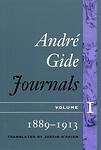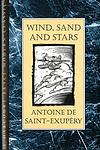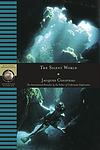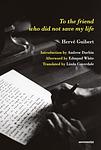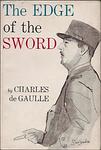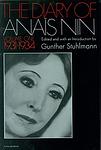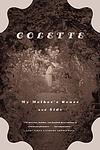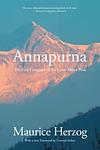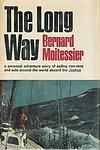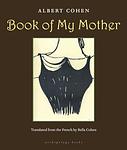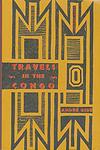The Greatest French "Nonfiction, Autobiography" Books Since 1900
Click to learn how this list is calculated.
This list represents a comprehensive and trusted collection of the greatest books. Developed through a specialized algorithm, it brings together 300 'best of' book lists to form a definitive guide to the world's most acclaimed books. For those interested in how these books are chosen, additional details can be found on the rankings page.
Genres
Autobiography is a literary genre that focuses on the life story of the author. It is a first-person account of the author's experiences, thoughts, and emotions, often including significant events and milestones that have shaped their life. Autobiographies can be written by anyone, from famous public figures to ordinary people, and can cover a wide range of topics, including personal growth, career achievements, struggles, and relationships. This genre provides readers with a unique insight into the author's life and perspective, making it a popular and engaging category of books.
Countries
Date Range
Reading Statistics
Click the button below to see how many of these books you've read!
Download
If you're interested in downloading this list as a CSV file for use in a spreadsheet application, you can easily do so by clicking the button below. Please note that to ensure a manageable file size and faster download, the CSV will include details for only the first 500 books.
Download-
1. Tristes Tropiques by Claude Lévi-Strauss
"Tristes Tropiques" is a blend of autobiography, travel literature, and anthropology by a renowned scholar. The book is a recounting of the author's travels and anthropological work, primarily in Brazil, in the 1930s. It provides a critical and philosophical reflection on his experiences and observations, offering insights into indigenous tribes like the Nambikwara and Tupi-Kawahib, and exploring themes of cultural change, the nature of anthropology, and the author's own disillusionment with Western civilization.
-
2. Words by Jean Paul Sartre
This book is a memoir that explores the author's early life and development as an intellectual. He reflects on his childhood experiences in a non-linear narrative, detailing his relationship with his mother and grandfather, his early education, and his evolving understanding of language and literature. The author also delves into his philosophical ideas, examining the concept of existentialism and the role of the individual in society. The book serves as a profound exploration of the power of words and the impact of childhood experiences on adult life.
-
3. Promise at Dawn by Romain Gary
"Promise at Dawn" is a semi-autobiographical novel that explores the life of a young man growing up in Eastern Europe, and later in France, under the shadow of his ambitious and eccentric mother. The protagonist's journey takes him through various phases of his life from his childhood, through his experiences as a pilot in World War II, to his adult life as a diplomat and a writer. The story is a tribute to the protagonist's mother, who instilled in him the values of courage, resilience, and the pursuit of grandeur, even in the face of adversity.
-
4. Journals: 1889-1913 by André Gide
"Journals: 1889-1913" is a compilation of personal entries by a prominent French author, written over a span of 24 years. The journals offer a deep insight into the author's thoughts, emotions, and experiences, providing a unique window into his personal life and his creative process. The entries also reflect on the social, political, and cultural events of the time, making the journals not only a personal memoir but also a historical document of late 19th and early 20th century France.
-
5. Wind, Sand and Stars by Antoine de Saint-Exupéry
This book is a memoir by an early twentieth-century French aviator, sharing his experiences as a pioneer of aviation in the 1920s and 1930s, particularly in remote places such as the Sahara Desert and the Andes Mountains. The author reflects on the nature of adventure, the allure of the unknown, and the profound connection between human beings and the natural world. The book is also notable for its philosophical musings on the nature of life and death, solitude and solidarity, and the human condition.
-
6. The Silent World by Jacques Cousteau
"The Silent World" is an autobiographical account of a pioneering oceanographer and his team's underwater explorations. The book documents their adventures and discoveries, including the development and use of the first scuba diving equipment. The author shares his experiences of exploring shipwrecks, interacting with various marine life, and the dangers they faced in the depths of the ocean. The book also emphasizes the importance of marine conservation and the need to protect our oceans.
-
7. Papillon by Henri Charrière
The book is a memoir that chronicles the harrowing experiences of a Frenchman who is wrongfully convicted of murder and sentenced to life in the penal colonies of French Guiana. Determined to regain his freedom, he makes numerous escape attempts, facing incredible odds and enduring brutal conditions. His indomitable spirit and will to survive lead him through a series of adventures and misadventures, including solitary confinement, a stint in a leper colony, and living with indigenous tribes. Throughout his ordeal, his nickname, derived from the butterfly tattoo on his chest, becomes a symbol of his unyielding quest for liberty.
-
8. To The Friend Who Did Not Save My Life by Hervé Guibert
The book is a candid and harrowing autobiographical novel that chronicles the life of a man grappling with the devastating impact of AIDS during the early years of the epidemic. Through a blend of fact and fiction, the narrative delves into the protagonist's personal experiences with illness, the medical establishment, and the emotional complexities of friendship and mortality. As he confronts his own declining health, the protagonist reflects on the relationships with those around him, including a close friend who is also facing the disease, and the betrayal he feels when a promised miracle cure fails to materialize. The novel is a raw and poignant exploration of the human condition in the face of an unforgiving illness.
-
9. The Edge of the Sword by Charles De Gaulle
"The Edge of the Sword" is a compelling exploration of the art of leadership and the nature of power. The author, a prominent military and political figure, delves into the essence of politics and the requirements of leadership, emphasizing the need for strength, courage, and an unwavering commitment to one's principles. The book also provides a unique insight into the author's own leadership style and his views on France's role in the world.
-
10. The Diary of Anais Nin, 1931-1934 by Anaïs Nin
This book is a deeply personal journal of a woman's life from 1931 to 1934, providing an intimate look into her experiences, thoughts, and emotions during this period. The author explores her relationships, her struggles with her writing, and her journey of self-discovery. The diary also captures her interactions with notable personalities of the time, giving readers a unique glimpse into the cultural and social milieu of the early 20th century. Her introspective and poetic style adds a layer of depth to her observations and reflections.
-
11. Days In The Caucasus by Banine
"Days In The Caucasus" is a captivating memoir that follows the personal journey of a young woman living in the Caucasus region during the early 20th century. The author beautifully recounts her experiences growing up in a multicultural society, filled with vivid descriptions of the diverse landscapes, traditions, and people she encounters. From her childhood adventures to her first love, the author provides an intimate glimpse into a world on the brink of change, capturing both the joys and challenges of life in the Caucasus.
-
12. My Mother's House And Sido by Colette
The book is a tender dual portrait that delves into the intimate realm of family life, presenting a vivid depiction of the author's childhood and the complex relationship with her mother. The first part is a nostalgic reflection on the author's familial home, a place imbued with memories and the nurturing presence of her mother. The second part focuses on the author's grandmother, Sido, offering a poignant character study filled with admiration and affection. Through evocative prose, the work captures the essence of a bygone era and the enduring bonds of maternal love, revealing the profound influence these maternal figures had on the author's development as a person and a writer.
-
13. Annapurna by Maurice Herzog
This book recounts the incredible true story of a French expedition to the Himalayas in the early 1950s. The team, led by an experienced mountaineer, faces extreme weather conditions, challenging terrains, and life-threatening situations in their quest to conquer the Annapurna peak. Despite losing fingers and toes to frostbite, the leader becomes the first person to reach the summit of an 8,000-meter peak, marking a significant milestone in mountaineering history. The narrative is not just about the physical journey but also delves into the psychological and emotional struggles of the climbers.
-
14. My Journey to Lhasa by Alexandra David-Neel
This book is a fascinating travel memoir documenting the author's daring and perilous journey to Lhasa, the capital of Tibet, in 1923. Disguised as a beggar and accompanied by a young Tibetan monk, she traversed harsh terrains, braved extreme weather conditions, and evaded authorities who forbade foreigners from entering the city. Throughout her journey, she encountered various aspects of Tibetan culture, religion, and way of life, offering an insightful and vivid portrayal of a land and people largely unknown to the outside world at that time.
-
15. Memoirs by Raymond Aron
The book in question is an intellectual autobiography by a prominent French philosopher and sociologist, chronicling his life from his early years through the tumultuous events of the 20th century. It delves into his experiences during World War II, his observations on the Cold War, and his relationships with other notable intellectuals of his time. The author reflects on his philosophical and political evolution, offering insights into his analytical approach to history, politics, and society. His memoirs serve as a window into the mind of a thinker deeply engaged with the ideological and historical challenges of his era, providing a personal perspective on the broader intellectual currents that shaped the modern world.
-
16. J'ai Quinze Ans Et Je Ne Veux Pas Mourir by Arnothy Christine
The book is a poignant memoir of a young girl's harrowing experiences during World War II. At the age of fifteen, she finds herself caught in the siege of Budapest, facing the horrors of war firsthand. With a blend of youthful innocence and a will to survive, she navigates the dangers of bombings, starvation, and the threat of death. Her narrative captures the resilience of the human spirit in the face of destruction, as she clings to life and the hope for a future beyond the devastation of conflict.
-
17. The Long Way by Bernard Moitessier
The book is a captivating narrative of a sailor's solo circumnavigation of the globe during a historic yacht race. Rejecting the trappings of fame and competition, the sailor chooses to continue sailing beyond the finish line, embracing the sea's vastness and his deep connection with nature. His journey becomes not just a test of physical endurance but a spiritual quest, as he reflects on life, the modern world, and the harmony found in simplicity. Through storms, wildlife encounters, and the solitude of the open ocean, the sailor's tale is a profound meditation on the human spirit and our relationship to the Earth.
-
18. Book Of My Mother by Albert Cohen
This poignant memoir serves as a tender homage to the author's late mother, exploring the depths of maternal love and the profound sense of loss following her passing. Through a series of reflective vignettes and personal recollections, the narrative delves into the complex relationship between mother and son, marked by both deep affection and the inevitable strains of growing independence. The author grapples with guilt and regret over his perceived shortcomings as a son, while celebrating the enduring impact of his mother's love and the indelible mark it left on his life. The work stands as a universal meditation on grief, memory, and the unbreakable bonds of family.
-
19. From A Chinese City by Gontran de Poncins
In this travelogue, the author offers an intimate glimpse into the daily life and culture of a pre-World War II Chinese city, far removed from Western influence. Through vivid descriptions and personal anecdotes, the narrative captures the essence of the city's streets, its people, and their traditions, painting a rich tapestry of local customs, beliefs, and the social dynamics of the time. The author's journey not only explores the physical spaces of the city but also delves into the philosophical and spiritual undercurrents that define the heart of its civilization, providing a unique and timeless insight into a way of life that stands at the crossroads of change.
-
20. Travels In The Congo by André Gide
"Travels in the Congo" is a travelogue that recounts the author's journey through the French Congo in the early 20th century. The narrative provides a detailed account of the landscapes, people, and colonial practices encountered during the expedition. The author critically examines the impact of French colonialism on the indigenous populations, highlighting the exploitation and injustices faced by the native people. Through vivid descriptions and reflective insights, the book not only serves as a record of a personal adventure but also as a commentary on the broader political and social issues of the time.
-
21. Renoir, My Father by Jean Renoir
"Renoir, My Father" is a captivating biography that offers an intimate glimpse into the life and work of the renowned French Impressionist painter through the eyes of his son. The book delves into the artist's personal and professional world, exploring his relationships, his struggles, and his profound influence on the art world. The narrative, rich with personal anecdotes and insights, paints a vivid portrait of a man deeply committed to his artistic vision, while also highlighting the familial bonds and the era that shaped his remarkable career. This work not only celebrates the legacy of a great painter but also provides a touching exploration of a father-son relationship.
-
22. War Diaries by Jean Paul Sartre
"War Diaries" is a collection of personal notebooks kept by the philosopher during the early years of World War II, specifically from 1939 to 1940. These diaries provide a unique insight into his thoughts and feelings during this tumultuous period, capturing his reflections on the intellectual and social climate of the time. The entries delve into his philosophical musings, everyday challenges, and his observations on the impact of the war on French society and culture. Through these diaries, readers gain an intimate understanding of the author's development of existential ideas in response to the war's unfolding events.
-
23. Memoirs Of A Revolutionary by Victor Serge
"Memoirs of a Revolutionary" presents a vivid account of political activism and survival during a turbulent period in 20th-century Europe. The author, a committed revolutionary, provides an insider's perspective on the rise and fall of various socialist movements, detailing his involvement in the Russian Revolution and subsequent disillusionment with the Stalinist regime. Through his narrative, he explores the moral and ethical challenges faced by intellectuals and activists in a time of revolutionary fervor and political repression, offering a poignant reflection on the struggles and sacrifices of those who dedicate their lives to the cause of social change.
-
24. Prisoner Of Love by Jean Genet
"Prisoner of Love" is a non-fiction book that blends memoir, history, and philosophical reflection. It chronicles the author's experiences in the late 1960s and early 1970s among Palestinian fedayeen (guerrilla fighters) and later, in the mid-1970s, with the Black Panthers in Jordan. The narrative delves into the daily lives of these revolutionaries, their struggles, and the author's own reflections on issues of love, loyalty, and identity. Through his immersive and poetic prose, the author explores the complexities of political commitment and the human condition, offering a deeply personal yet universally resonant account of solidarity and resistance.
-
25. Manhood by Michel Leiris
"Manhood" is a candid and introspective autobiography that delves into the author's personal journey through life, exploring themes of identity, masculinity, and self-perception. The narrative is marked by its raw honesty and psychological depth, as the author scrutinizes his experiences, relationships, and the societal expectations that shape the concept of manhood. Through a blend of personal anecdotes, philosophical reflections, and literary allusions, the book offers a nuanced examination of the author's struggles with his sense of self and the often tumultuous path toward understanding and accepting his own humanity.
Reading Statistics
Click the button below to see how many of these books you've read!
Download
If you're interested in downloading this list as a CSV file for use in a spreadsheet application, you can easily do so by clicking the button below. Please note that to ensure a manageable file size and faster download, the CSV will include details for only the first 500 books.
Download


